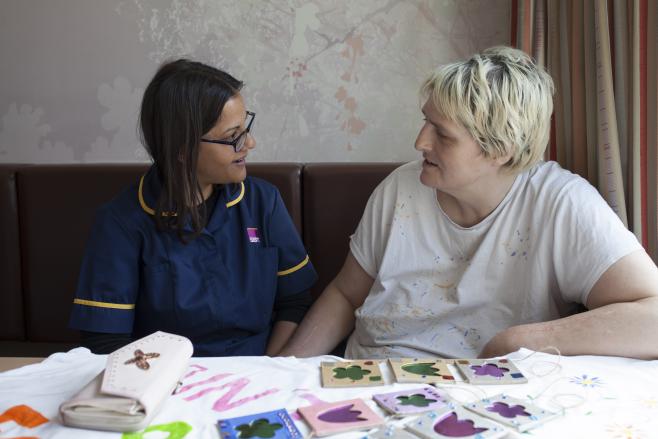You are here
Improving health literacy

Better health through improved heath literacy
There is a crisis in adult literacy that directly impacts on people’s health. In the UK 7.1 million adults read and write at or below the level of a nine-year-old and, critically, 43% of adults do not understand written health information.
Providing reliable easy-to-understand health information in accessible formats for patients and communities can help people make better decisions about their health and take an active part in planning their own care. Being armed with greater knowledge can also have a huge impact on how people respond to treatment, recover from illness and manage a long-term condition.
At the same time, using straightforward language can give people the confidence to ask questions without feeling uncomfortable or foolish.
All year round, Health Education England’s national Library and Knowledge Services team work with local NHS library and knowledge specialists across England to help them to share their expertise in this field. Health Literacy Month provides a further opportunity to have more conversations about health literacy with more of their NHS colleagues, their peers in the third sector and carers.
Working with NHS Scotland, Health Education England has devised an online course on health literacy that is free for all to use. This is made available on the e-Learning for Healthcare platform and throughout this month we will be sharing examples of great health literacy to show just how easy it can be to help people understand their health better. The theme of Health Literacy Month this year is Health Literacy Heroes: we will be sharing the work of some of our heroes and hope that you will do so too.
Health literacy is underpinned by digital literacy skills as interactions with the health service are increasingly digital
HEE believes that health information must be based on robust evidence. Local NHS library and knowledge staff support NHS organisations to provide patient information materials that are based on evidence. They also signpost resources to help NHS organisations to fulfil their legal duty and meet the Accessible Information Standard by providing patient information in accessible formats such as Easy Read and British Sign Language.
In partnership with Public Health England, NHS England and the Community Health and Learning Foundation, we developed a collection of health literacy tools for healthcare staff and carers.
Health Literacy Toolkit
- Health literacy case studies
- Health literacy how to guide
- Health literacy slides
- Health literacy toolkit presentation
- Health literacy workshop lesson plan
- HL Business Case Template final
- Strategic Report - Making the case for health literacy - East Midlands national demonstrator site
Patrick Mitchell, Director of Innovation and Transformation said “it is such a basic need for people to understand more about their health and wellbeing. Developing the health literacy training programme is just one of the many actions we are taking to enable health and care staff to have the tools and build the skills to more effective in supporting patients, families and carers to understand their treatment or preventative measures.”
Ruth Carlyle, who leads this work on health literacy as part of delivering Knowledge for Healthcare said: “Improving health literacy is not about dumbing down information but simply making information about health much more accessible. At the same time, it gives staff the confidence to communicate with patients and carers, safe in the knowledge they are providing appropriate information and advice that people truly understand.”
For more information go to knowledgeforhealthcare.england@hee.nhs.uk or visit https://kfh.libraryservices.nhs.uk/